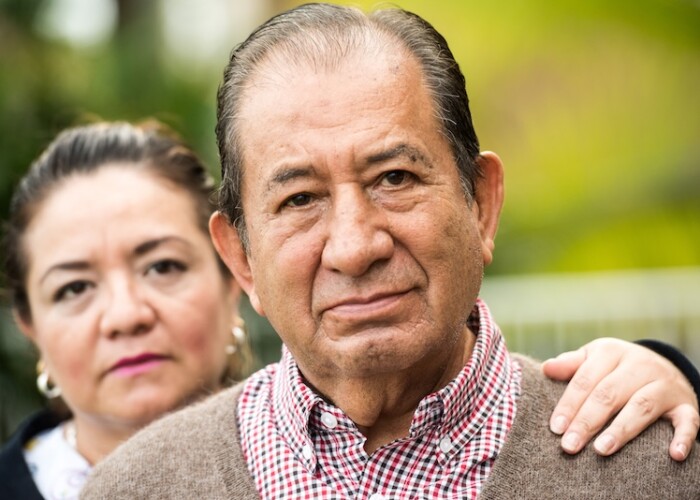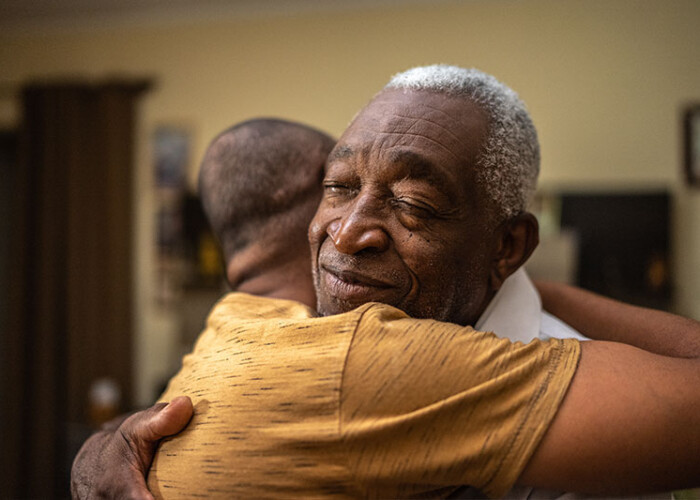Senior Care
Conditions That Mimic Dementia and Why You Need to Watch For Them
Understanding conditions that mimic dementia can help you find answers and treatments you might not otherwise consider.
When someone you love begins showing symptoms like confusion, memory loss, or difficulty with everyday tasks, it’s natural to fear the worst. Dementia is often the first explanation that comes to mind. But what you might not realize is that there are conditions that mimic dementia, conditions that look almost identical at first glance but may actually be treatable. That means the changes you’re seeing may not be permanent, and the future may be far more hopeful than you think.
Are Your Parents Refusing Help? Try These Tips.
If you’re struggling with parents refusing help when you know it’s needed, try these tips.
It’s a challenging scenario many family caregivers face: your aging parents, who once cared for you, now resist the help they so desperately need. It’s a delicate balance between respecting their freedom and ensuring their safety and well-being. If you find yourself with parents refusing help at home, you’re not alone! We understand the range of emotions that go along with accepting the need for care, and have some tips to help you and your parents get on the same page.
Breaking Free From Caregiver Guilt Starts With One Small Step
Letting go of caregiver guilt opens the door to peace, balance, and renewed strength.
If you’ve ever said, “I’ll handle that once Mom’s settled,” or “There’s just no time for me right now,” you’re not alone. Nearly every family caregiver has been there — caught in the trap of self-sacrifice and caregiver guilt. It feels noble to put your needs last. After all, someone you love depends on you.
Life Lessons Learned by Having a Parent With Parkinson’s
Having a parent with Parkinson’s means learning to adapt and grow in ways you may have never expected.
Having a parent with Parkinson’s disease changes life in ways you never quite expect. The diagnosis changes routines, relationships, and even the way you think about time. At first, it may feel overwhelming. There are so many questions and fears about what the future will look like. Yet, alongside those challenges come unexpected lessons. People who have been there often find themselves developing greater strength, resilience, and compassion than they ever thought possible.
Here’s What You Should Never Say to Someone With Dementia
Learn what you should never say to someone with dementia, and what to say instead.
Have you ever said something you wish you hadn’t said? Maybe your intention was to compliment a friend on her new haircut, but you came across sounding like you were criticizing her previous hairstyle. Choosing our words carefully is always important, but even more so when speaking with someone with dementia. The words we say and the way we say them can significantly impact the person’s emotional well-being and quality of life. And it’s just as important to know what you should never say to someone with dementia.
Is It Anxiety, Depression, or PTSD in a Senior Loved One? Here’s How to Tell.
It’s important to recognize the signs of PTSD in a senior loved one and know where to turn for help.
A sudden crack of fireworks booms overhead, and the person next to you stiffens. A song drifts through the room, and you notice a shift in their expression. For someone who has lived through trauma, everyday sights, sounds, and smells can be powerful reminders of painful experiences. What might appear to be nerves, stress, or even age-related changes can actually be something much more complex: PTSD in a senior loved one.
How to Conquer the Fear of Falling in Older Adults
Don’t let the fear of falling in older adults hold back someone you love from living life to the fullest!
Aging brings wisdom, perspective, and cherished memories—but it can also bring new worries. One of the most common concerns is the fear of falling in older adults. While understandable, this fear can quietly steal independence, limit activity, and lead to feelings of isolation. In fact, many people avoid walking outdoors, exercising, or even socializing because they worry about losing their balance.
See you at the Fair!
We’re LIVE!
Join us today from 9 to 3 at the MARIN SENIOR FAIR! Meet tons of Community Partners, and learn about a myriad of services and products focused specifically on our Senior Community. The event is FREE, with lots of food, entertainment and prizes! And there’s also air conditioning! Stop by the Hired Hands Homecare booth to say HI – hope to see you there!
Get the details at https://2025.marinseniorfair.org/
What Are Catastrophic Reactions in Alzheimer’s, and How Should You Handle Them?
Learn about catastrophic reactions in Alzheimer’s, including what to watch for, how to prevent them, and how to manage them if they occur.
Caring for someone with Alzheimer’s is a little like walking through shifting sands. Just when you think you’ve found steady ground, the landscape changes. One of the most startling effects you may encounter is what’s known as catastrophic reactions in Alzheimer’s disease—a sudden, overwhelming emotional outburst that can erupt from something as simple as a routine question or a minor change in environment.
10 Unique Birthday Party Ideas for Seniors That Everyone Will Love
Try one of these memorable birthday party ideas for seniors.
Celebrating a birthday is always special, but when it’s for someone who has lived through decades of stories, milestones, and cherished experiences, it becomes even more meaningful. Coming up with unique birthday party ideas for seniors isn’t always easy, however. How do you plan a celebration that will be remembered long after the candles are blown out? It starts with centering the party around the guest of honor. Ask yourself:

















